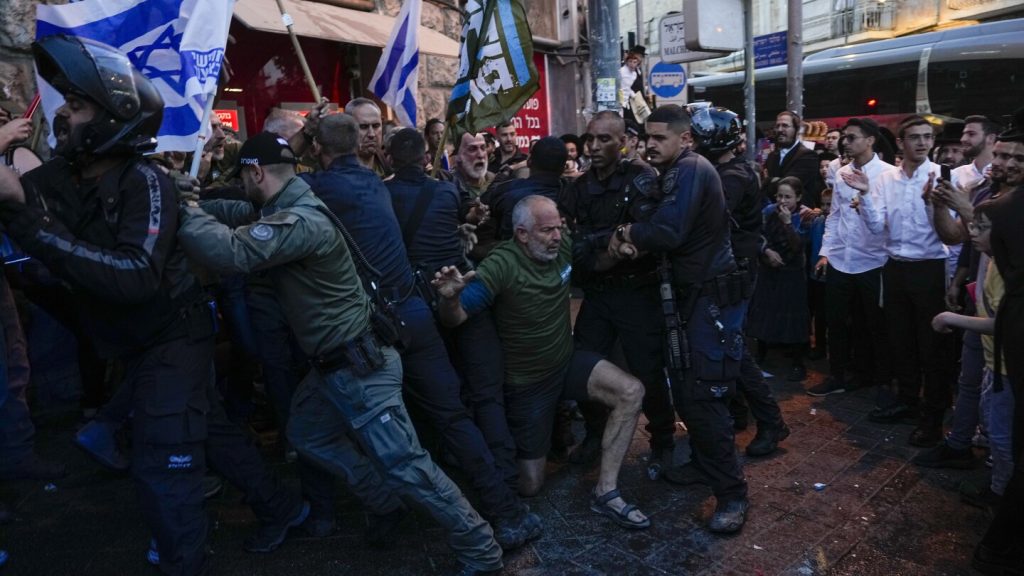Tens of thousands of Israelis gathered in central Jerusalem in the largest anti-government protest since the start of the country’s war with Hamas in October. The demonstrators called for the government to reach a cease-fire agreement to free dozens of hostages held by the militant group in Gaza and for early elections to be held. The country was initially united after the conflict began, but divisions over the leadership of Prime Minister Benjamin Netanyahu have resurfaced. Despite Netanyahu’s promises to destroy Hamas and bring all the hostages home, progress has been slow and elusive.
The families of the hostages are becoming more vocal in their criticism of Netanyahu, accusing him of hindering negotiations and acting in his own interests rather than the national interest. Some protesters blame Netanyahu for the failures of October 7 and his attempts to overhaul the judicial system, which they believe weakened Israel prior to the attack. There are also concerns about Netanyahu’s corruption charges and his focus on political survival rather than resolving the current crisis. The demonstration in Jerusalem gathered momentum, with protesters calling for new elections to be held ahead of schedule.
The ongoing conflict and hostage situation have put pressure on Netanyahu’s leadership, with some families of hostages expressing frustration with his handling of the crisis. While Netanyahu has expressed understanding for their pain, he has cautioned against calling for new elections at a critical juncture in the conflict. Despite growing calls for change, some families believe that a leadership change now would only distract from efforts to bring the hostages home. Netanyahu has also reiterated his intention to launch a military ground offensive in Rafah, a city in southern Gaza where Hamas forces are located.
In addition to the political tensions in Israel, there have been reports of Israeli airstrikes targeting locations in Gaza, including a hospital where two Palestinians were killed and several others injured. The conflict has taken a toll on Gaza’s hospitals, with many residents seeking shelter in crowded medical facilities. There are concerns about a potential famine in northern Gaza due to limited aid deliveries, with humanitarian officials calling for increased access for aid shipments. The death toll in Gaza continues to rise, with the Health Ministry reporting over 32,000 Palestinians killed since the start of the war.
As the conflict escalates and casualties mount, there are fears of a wider regional conflict, with reports of Israeli airstrikes in Lebanon targeting Hezbollah militants. The situation remains tense, with ongoing fighting and humanitarian concerns exacerbating the crisis. International efforts to provide aid and negotiate a cease-fire have been hindered by the complexities of the conflict and the deep-rooted divisions within Israel and the region. Despite the challenges, there are continued calls for peace and a resolution to the conflict that has devastated both Israelis and Palestinians.


